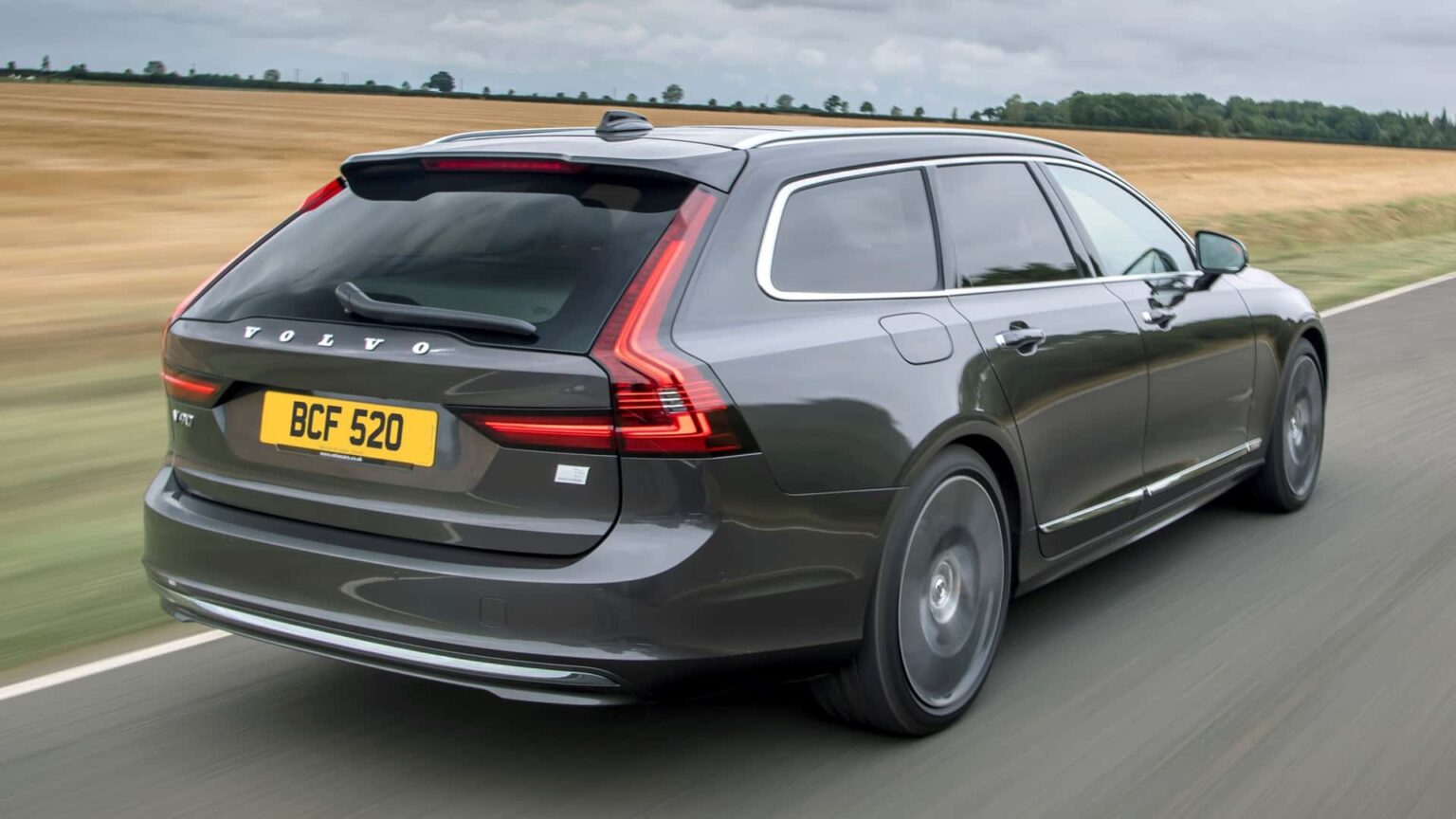After a false alarm back in February, the Volvo V90 is officially going away. The luxury wagon will go out of production later this month, and this time, a direct successor sadly isn’t planned. In fact, the Geely-owned brand is seriously considering abandoning the body style altogether. Despite decades of tradition, wagons have fallen out of favor as more customers flock to SUVs.
Volvo CEO Jim Rowan told Autocar that the last V90 will be assembled in September, and he hinted that the V60 won’t be renewed either once its time comes to an end. The silver lining is that the smaller wagon will remain in production for the foreseeable future, so there’s still time to buy a long-roof Volvo. But when asked whether the Swedes are seriously considering dropping wagons altogether, Rowan left no room for interpretation: “Yeah, because I think it’s changed, right? SUVs have changed with ride height.”
Photo by: Volvo
While the V90 is dead, its sedan sibling survives, though only in select markets. The aging S90 even received a second facelift earlier this year and will continue in China and a few other Asian markets. Globally, Volvo is replacing the gasoline luxury sedan with the fully electric ES90, which is technically a five-door liftback since it comes with a more practical tailgate.
Volvo also recently dusted off the “XC70” moniker it once used for a rugged wagon, but the newcomer is—yes, you guessed it—an SUV. Much like the S90, it’s aimed at China and marketed as a long-range plug-in hybrid. How does the company intend to fill the estate-shaped void? Rowan suggested the XC60 could be positioned differently to appeal to wagon buyers.
The V90’s demise can only be good news for the German premium trifecta. The BMW 5 Series Touring, Audi A6 Avant, and Mercedes E-Class Estate are here to stay. All three brands also have smaller counterparts battling the V60, which is bound to retire eventually. Wagons still matter in Europe, where mainstream brands continue to offer a wide range of models for buyers who have not yet been swayed by the SUV craze.

9
SUVs do bring advantages, such as easier ingress and egress and more convenient cargo loading when lifting heavier items, but these are offset by notable drawbacks. Wagons are usually lighter, cheaper, and more efficient. Additionally, a handful of lifted wagons offer the extra ground clearance typically found in SUVs. Even so, wagons have fallen victim to the popularity of SUVs, partly due to the misconception that SUVs are inherently safer, when in reality, safety depends heavily on the type of accident.
As sad as it is to see the V90 go, the blame doesn’t fall squarely on Volvo. If the big wagon had continued to deliver strong sales, it would have survived in the lineup. But it didn’t. According to the company, the model’s demise is “in accordance” with the “global cycle plan,” which now favors crossovers and SUVs.
Read the full article here



